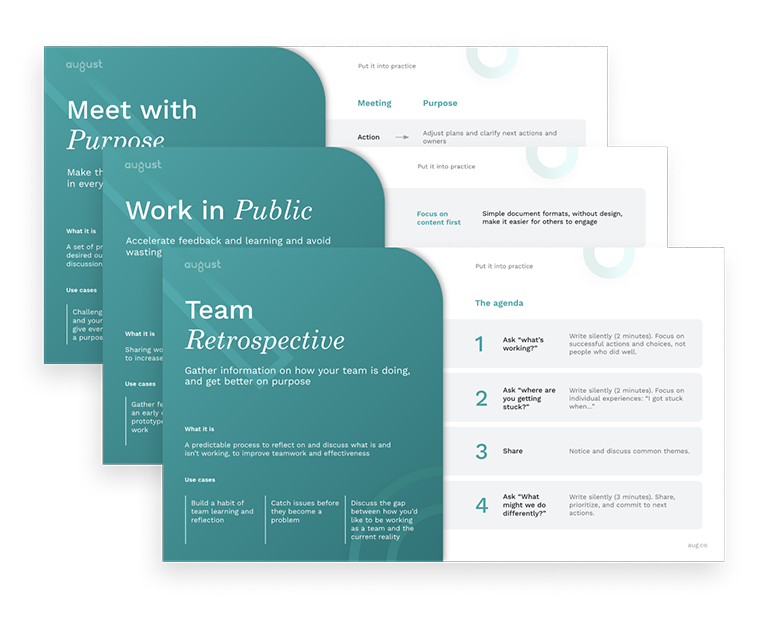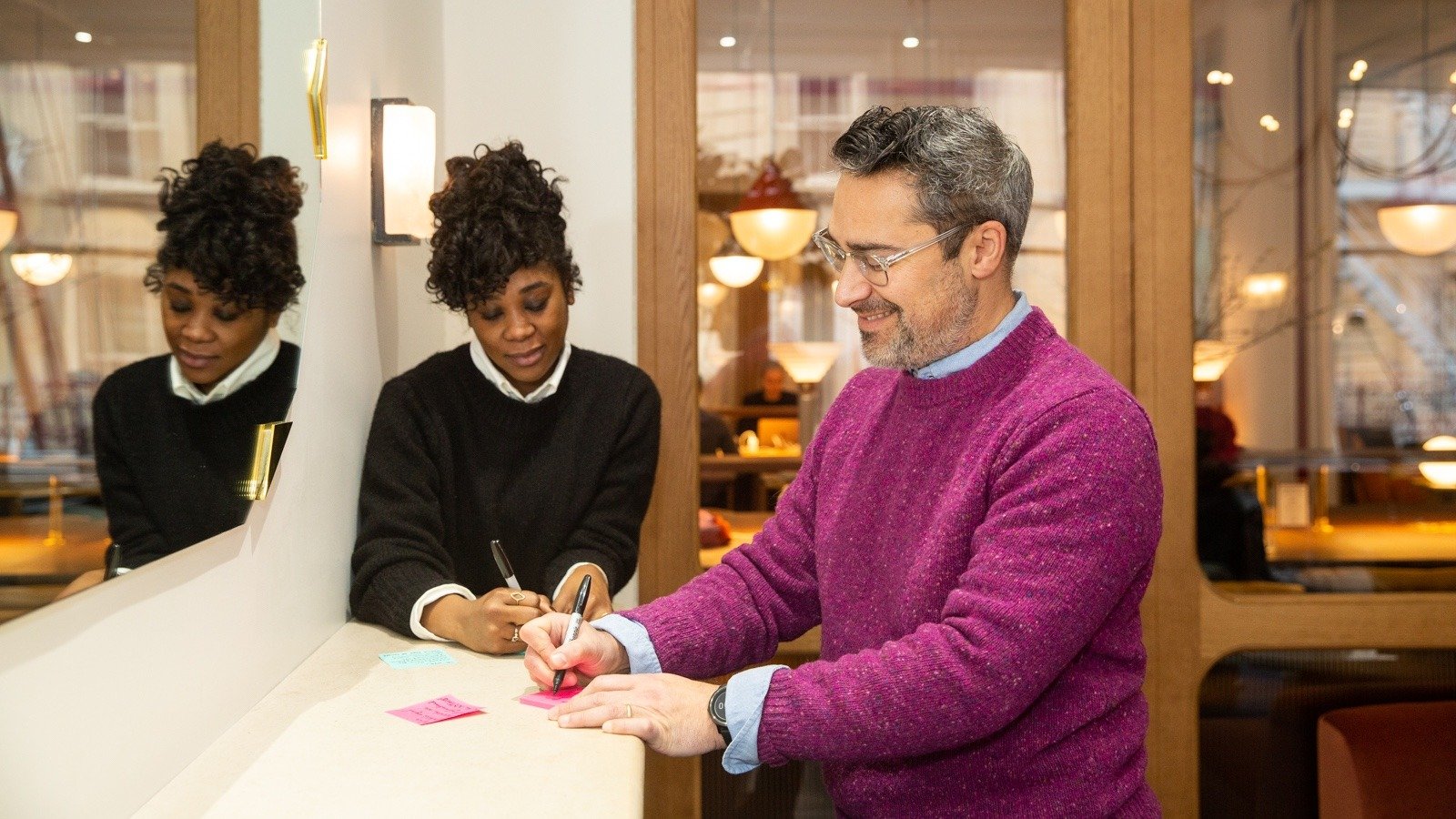Published August 22, 2023 | Updated February 13, 2024 | 4 minute read
PepsiCo came to August seeking support for a crucial challenge. They sought a comprehensive transformation in the way they worked: a shift from abstract ideals to practical, sustainable change.
We took on the task, believing in the power of the human element to drive organizational change. Over the course of 18 months, we partnered with PepsiCo’s corporate leadership team to implement strategies that would ultimately impact over 300,000 employees across 60 global markets and a multitude of functions.
The Challenge: From Concept to Action
PepsiCo was not simply looking for new ways of working, but also the changes in mindset and behavior that would lead to lasting transformation. The target audience was vast, comprising over a quarter million internal employees across different functions, from marketing to finance to IT and more.
The Strategy: Humanizing Organizational Change
Our team was fully committed to this challenge.
We started in Phase 1 by working closely with PepsiCo's executive team to identify five business-critical missions. Each mission was assigned a lean, autonomous, multidisciplinary team of top-tier talent trusted implicitly by leaders. These teams embarked on a fast, structured, agile problem-solving model, marked by an intense bias for action, tolerance for risk, and a relentless drive for testing and learning.
One example of how our approach was leveraged by leaders to drive business performance was in our work with PepsiCo UK.
At the time, the UK division of PepsiCo had been grappling with a steady decline in revenues for two consecutive years. As they stood on the verge of a third year of decline, general manager Ian Ellington recognized the dire need for swift action. The company’s bureaucratic processes and entrenched systems, however, stood as roadblocks to the rapid, innovative responses it urgently needed.
 For a full analysis of how our approach helped turn things around for PepsiCo UK, read this Harvard Business Review article by Amy C. Edmondson and Ranjay Gulati.
For a full analysis of how our approach helped turn things around for PepsiCo UK, read this Harvard Business Review article by Amy C. Edmondson and Ranjay Gulati.
Rather than getting stuck in formal agile methodologies, August implemented what HBR describes as "agility hacks.”
Agility hacks are “shortcuts or novel methods that increase productivity or responsiveness, and they deliver on computer programmers’ original use of the term 'hack': a quick, effective, if inelegant, solution to a specific problem."
Through our work together, PepsiCo UK achieved an impressive turnaround, increasing revenues by 2.3% in the first year and 2% in the second – a stark contrast to the previous downward trend.
Our successful execution of this mission and others across PepsiCo UK provided us with a scalable operating model, and set the stage for Phase 2: launching the movement worldwide.
This movement entailed a global rollout of the key practices, resulting in new behavioral shifts that we had codified in our work in the UK. The strategies began spreading organically across PepsiCo’s global workforce, not just because of senior management's mandate, but because the employees themselves began to see the benefits and chose to adopt these methods.
Phase 3 was focused on long-term sustainability. We stood up an internal coalition, designed as an opt-in Center of Excellence, with global and local representation from business units and functions critical to long-term sustainability. The formation of this coalition, and the training of master coaches, laid the groundwork for a self-sustaining transformation, scalable to all corners of the globe.
The Impact: From Engagement to Efficacy
By the end of our partnership with PepsiCo, we had sparked a global movement of tens of thousands of people across the organization, created measurable behavioral changes, and generated tangible economic improvement for the business. Over 10,000 people globally had adopted the new practices, business-critical missions were accelerated, and teams were moving 15-30% faster.
Within just 12 weeks of working with August, participants in the program reported increased autonomy in decision-making (+28%), alignment on team priorities (+31%), and a higher frequency of shipping products to users (+35%). In addition, clarity about roles (+27%) and access to necessary information (+32%) improved, while also ensuring everyone's voices were heard equally (+32%).
As one leader put it:
"This is a blistering pace. Our cycle time – and the frequency and consistency of stakeholder feedback – is the big unlock here. It’s a game changer."
August and PepsiCo: A Partnership Rooted in Transformation
Our partnership with PepsiCo exemplifies how essential the human element is for successful organizational change. From the beginning, we were committed to delivering more than just a new way of working; we wanted to deliver a sustainable and scalable transformation rooted in new mindsets and behaviors. We witnessed firsthand how our human-centered approach not only accelerated business missions, but also created an engaging and fulfilling work environment for thousands of employees.
In a world that is ever-changing, we believe that adaptability, agility, and most importantly, the human element can drive the transformation that businesses need.
Our experience with PepsiCo reinforced this belief, showcasing the potential that lies in coupling lean, responsive methods with an empowered, engaged workforce.
This project remains a testament to our conviction that change is not just about systems and processes; it's about the people who make it possible.


.jpg)






